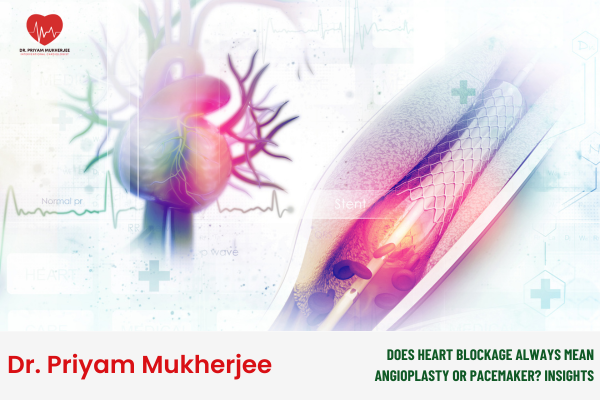When patients hear the term “heart blockage,” it’s often associated with fear and the assumption that invasive procedures like an angiogram, angioplasty, or pacemaker are inevitable. However, Dr. Priyam Mukherjee, a leading interventional cardiologist in Kolkata, explains that not all heart blockages require these interventions.
Understanding Heart Blockages
Heart blockages occur when the coronary arteries become narrowed or blocked due to plaque buildup, restricting blood flow to the heart. The severity and location of the blockage determine the treatment approach. While angiograms help diagnose the blockage and angioplasty clears the blockage, not all cases necessitate immediate intervention.
Alternative Approaches
Dr. Priyam Mukherjee highlights that in many cases, lifestyle changes, medications, and non-invasive tests can effectively manage mild to moderate blockages. Cholesterol-lowering medications, blood thinners, and beta-blockers can help stabilize plaque and improve blood flow. In some cases, non-invasive imaging like stress tests can monitor the heart’s function without the need for immediate angiograms or surgery.
Conclusion
While angioplasty or pacemaker insertion may be necessary for severe blockages, early intervention and medical management often allow patients to avoid invasive procedures.
